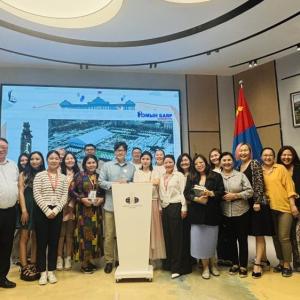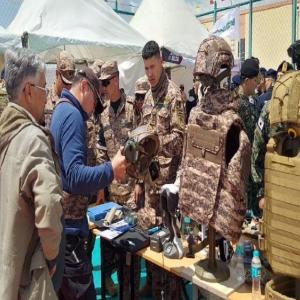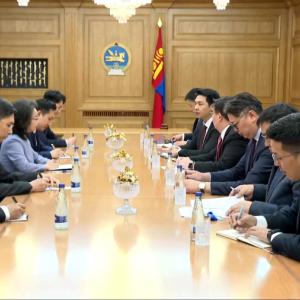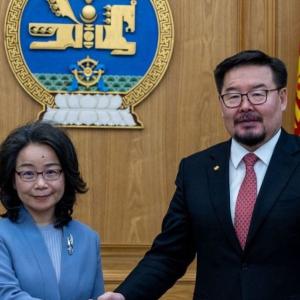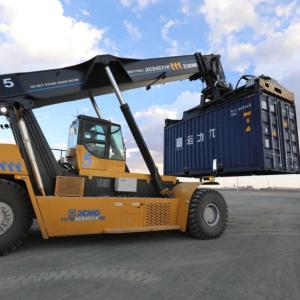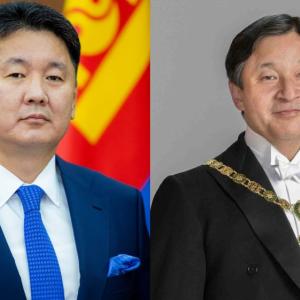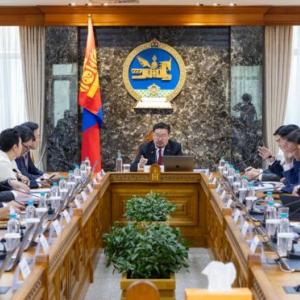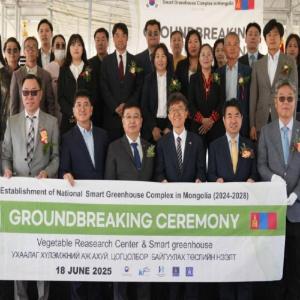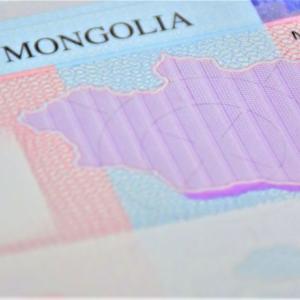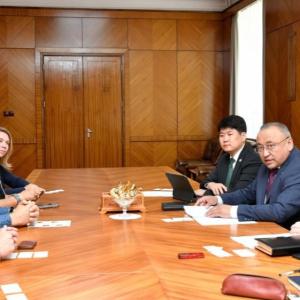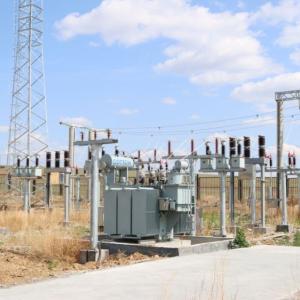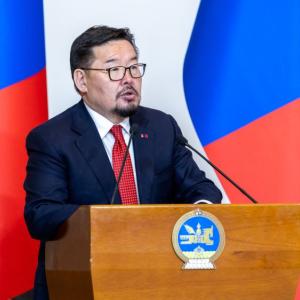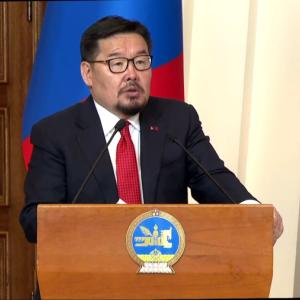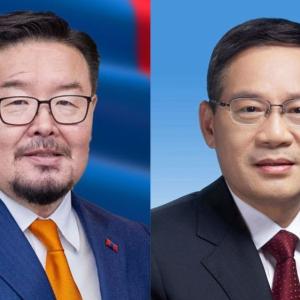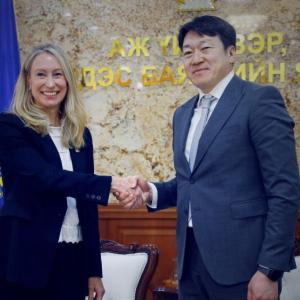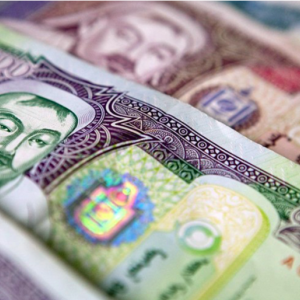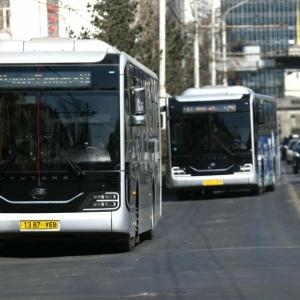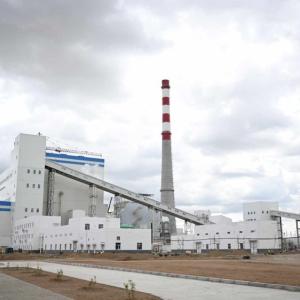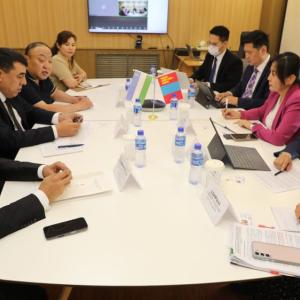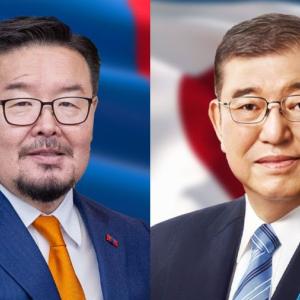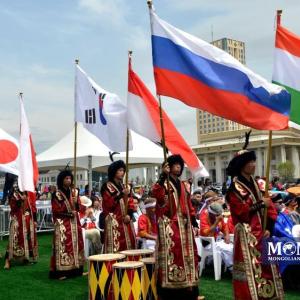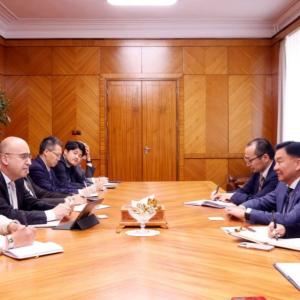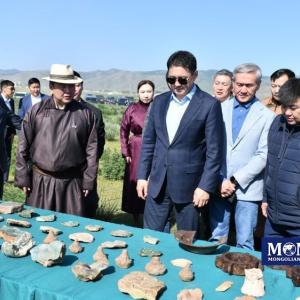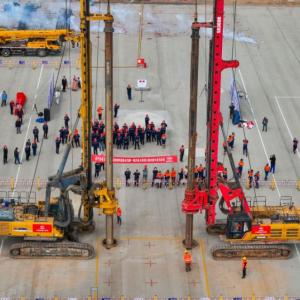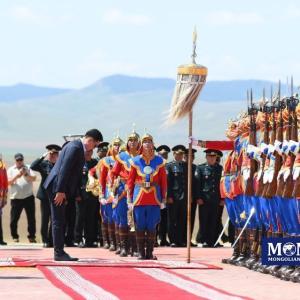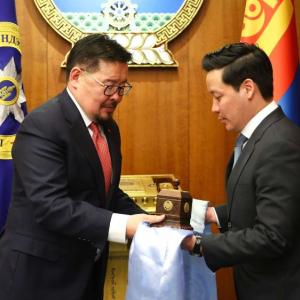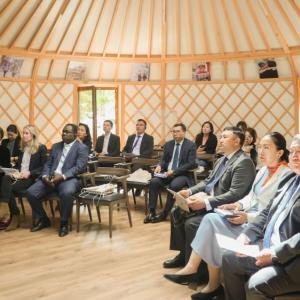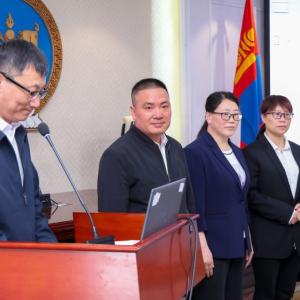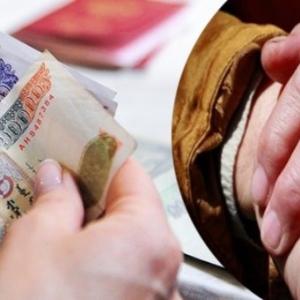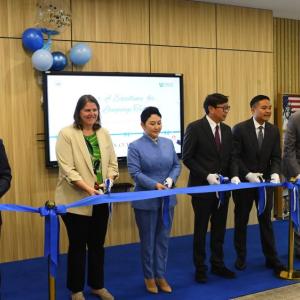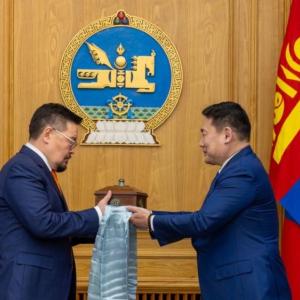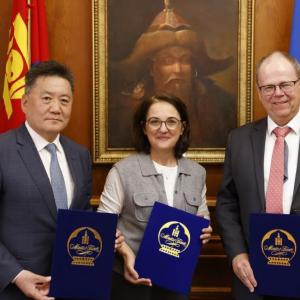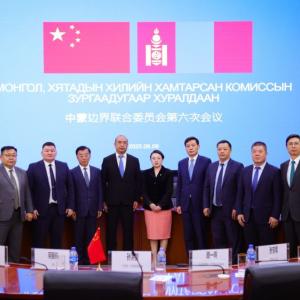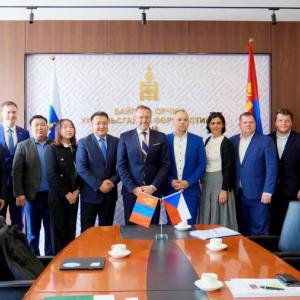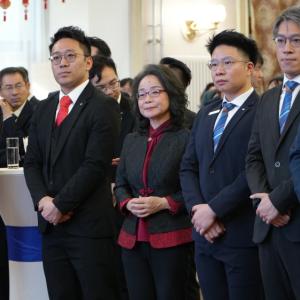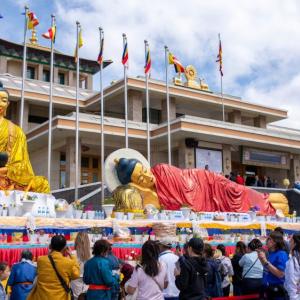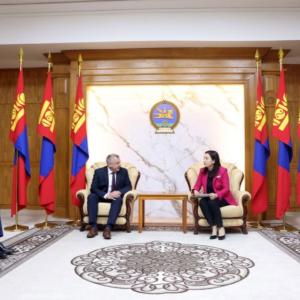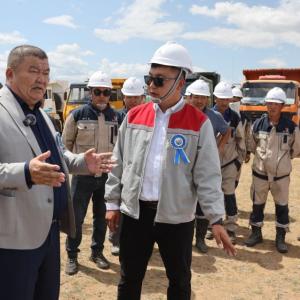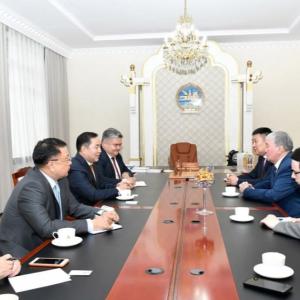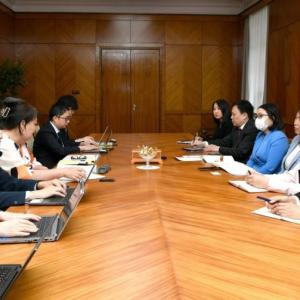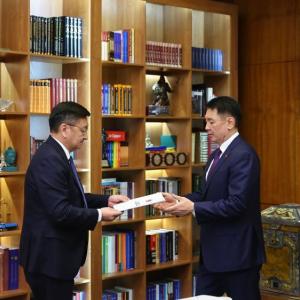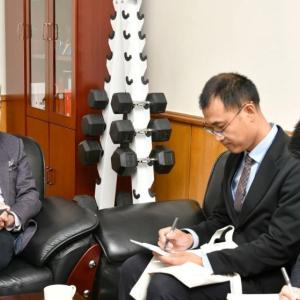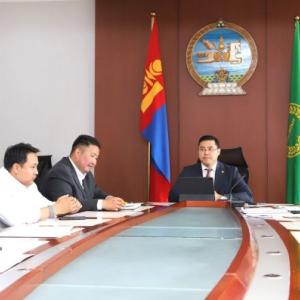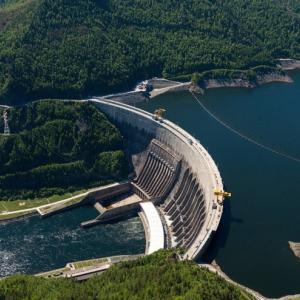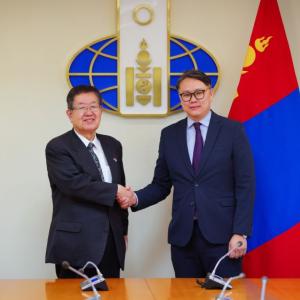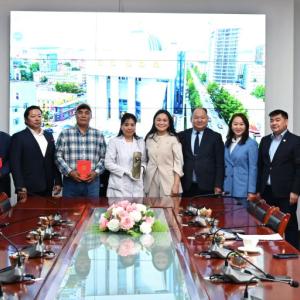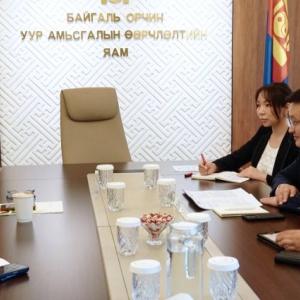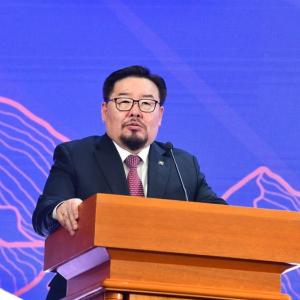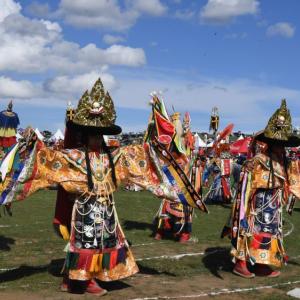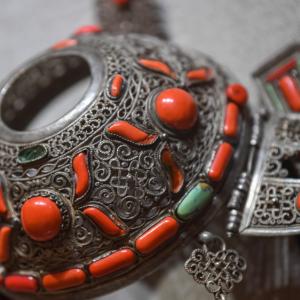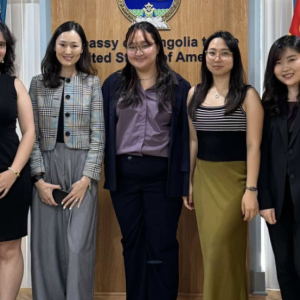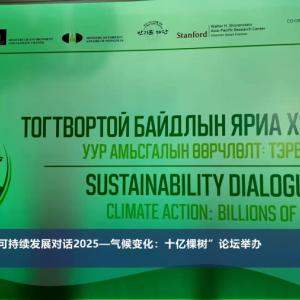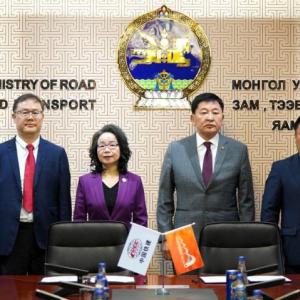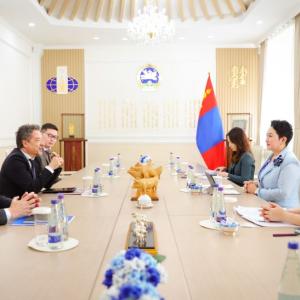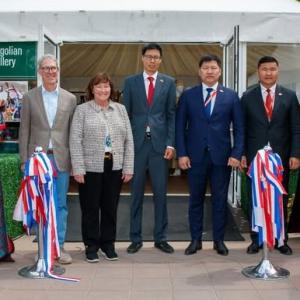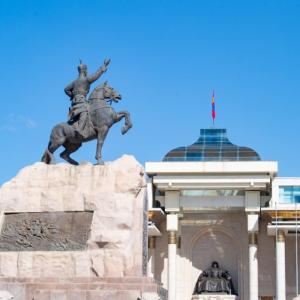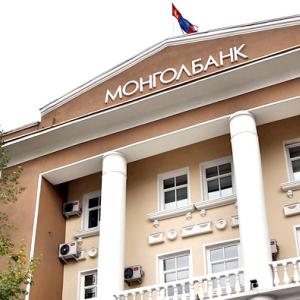President Khurelsukh: Strong partnership and close cooperation among women leaders are critical to achieving gender equality.
Politics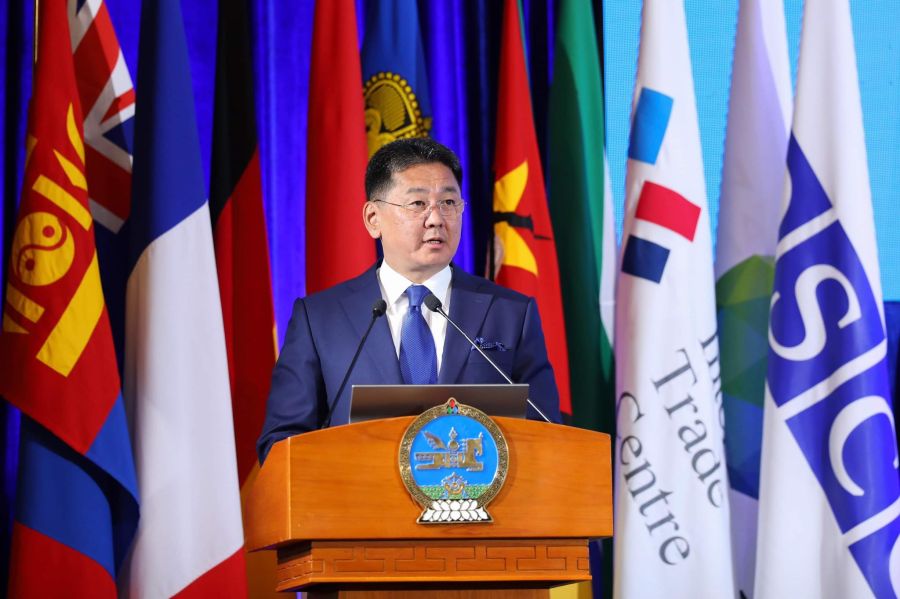
Ulaanbaatar, June 29,
2023 /MONTSAME/. The Female Foreign Ministers’ Meeting commenced
today in Ulaanbaatar, bringing together female foreign ministers of countries
around the world, ambassadors for gender equality, and representatives from the
UN and other international organizations.
We are presenting the full transcript of the opening remarks by President
of Mongolia Khurelsukh Ukhnaa, delivered at the Female Foreign Ministers’
meeting.
Esteemed Foreign Ministers,
Distinguished delegates,
Ladies and gentlemen,
Good morning to you
all, who have gathered here to participate in the international meeting of Female
Foreign Ministers on this auspicious day.
I wish to express my
sincere gratitude to our third neighbors, German Federal Foreign Minister Ms.
Annalena Berbock and French Minister for Europe and Foreign Affairs Ms.
Catherine Colonna, for their invaluable co-sponsorship of the meeting.
Historical records dating
back eight centuries reveal that envoys and representatives from the East and the
West gathered in Karakorum, the ancient capital of Mongolia, to discuss the strengthening
of people-to-people relations and solidarity, promotion of understanding among religions,
and expansion of trade and commerce.
With utmost
appreciation, I extend my heartfelt gratitude to the esteemed Female Foreign
Ministers and guests who, likewise, have convened from across the globe to address
the challenges faced by the global community and in international relations,
including peace and security, climate change, and the formidable challenges of
food security.
In the 13th
century, the Great Chinggis Khaan, under the principles of statehood and the
rule of law, brought peace and harmony to the West and the East, established “Pax
Mongolica” in the vast terrain of Eurasia.
During the “Pax Mongolica”
era, paramount importance was accorded to the rule of law, and thus fostered an
environment where nations coexisted harmoniously, free from conflicts, and thereby
laid the foundation for a peaceful life.
Jack Weatherford, renowned American scholar and
recipient of the Order of Chinggis Khaan, and other international scholars have
extensively documented in their works the important roles played by Mongol women
and queens in these historical times.
Nowadays,
the role and leadership of women leaders are crucial to ensuring global peace
and security, and achieving the sustainable development goals.
We
now have less than half the time to achieve the SDGs compared to when it was adopted
and the implementation of the 5th goal of ensuring gender equality still
remains still insufficient.
Gender statistics highlight the importance of
bolstering female representation at decision-making levels, fostering robust
support for women's employment, and empowering women economically as primary
areas of concern.
Researchers have concluded that as the
proportion of women in national parliaments increases, the likelihood of
violence, human rights violations, wars and conflicts decreases.
Hence, fostering a world free of gender
inequality stands as our shared aspiration. It is our collective duty and
responsibility to collaborate towards its realization.
Strong partnership and close cooperation among
women leaders are critical to achieving gender equality.
I am confident that today’s Female Foreign
Ministers’ Meeting will contribute to the achievement of the SDGs, in
particular gender equality, highlight the importance of women’s participation
and leadership in addressing global challenges, and strengthen their leadership
and political will.
Distinguished
delegates,
Evidence shows that
women’s heightened participation in political and public life and
decision-making level enhances the prospects of resolving interstate
misunderstandings, mistrust, disputes and conflicts through dialogue and
consultation, while further increasing the likelihood of its successful
implementation and the longevity of peace agreements.
Mongolia has long pursued a peace-loving, open,
multi-pillared and independent foreign policy and has actively participated in
the strengthening of international peace and security and contribute to
peacekeeping endeavors.
Presently, in
terms of the number of women peacekeepers, Mongolia ranks 17th out
of 120 countries, which donate military and
police forces to the UN Peacekeeping operations, leading the Northeast and Central
Asian regions.
In
commemoration of the 20th anniversary of Mongolia's participation in
UN Peacekeeping operations, we took the lead in organizing an international
conference entitled “Strengthening the Role of Women in Peacekeeping” in 2022.
Furthermore, during my
address at the General Debate of the 77th session of the UN General
Assembly, I proclaimed Mongolia's decision to hold the conference every five
years.
We do hope that this
decision will fortify the implementation of UN Security Council Resolution 1325
on Women, Peace and Security, while concurrently raising awareness of the
importance of increasing the number of women in peace processes.
Therefore, I would like
to emphasize the importance of your cooperation, courage and determination and
efforts in amplifying women’s leadership and active participation in tackling
the global challenges such as fortifying international peace and security, and easing
tensions through peaceful means and dialogue.
Distinguished delegates,
Climate change,
biodiversity loss, desertification, soil degradation, water scarcity and
droughts remain high on the agenda of the challenges that humanity needs to
address.
Mongolia is one of the
countries heavily affected by climate change.
Mongolia is
experiencing global warming at a rate twice as fast as the global average. Over
the last 70 years, average temperature in Mongolia rose by 2.2 percent and
precipitation decreased by about 7 percent.
In order to combat and
alleviate the impacts of climate change, desertification and yellow dust
storms, while simultaneously enhancing water resources and forested areas, the
national movement "Billion Trees" is being effectively rolled out in
our country to plant and grow billions of trees.
I am pleased to note that
the "Billion Trees" national movement received support from governments
and development partners, international organizations, leading Mongolia to
become the first Asian country to participate in the EU's Forest Partnership
program in 2022.
With a view to
contributing to addressing climate change and mitigating its negative impacts
both at the regional and international levels, as well as to protecting the
environment, I am pleased to inform that preparations are underway to host the
17th session of the Conference of the Parties to the UN Convention
to Combat Desertification (UNCCD COP17) in 2026 in Mongolia.
As Mongolians, our rich
cultural heritage is deeply rooted in nomadic traditions and a pastoral way of
life.
Regrettably, 77 percent
of our land has been affected by desertification and land degradation.
The ever-dwindling
rangelands pose a grave threat to the livelihoods of over 200 million people
across nomadic civilizations worldwide, including ours, as climate change, land
degradation, desertification, drought and the “dzud” winter disasters
persistently jeopardize their way of life.
I am pleased to note
that in order to protect their interests, improve pasture management and use,
preserve ecosystem balance, and provide global food security and supply,
Mongolia initiated a UNGA resolution entitled “International Year of Rangelands
and Pastoralists, 2026”, which was adopted in 2022.
Although climate change
is affecting everyone on the planet, its impact is disproportionate and varies
across age, gender, ethnicity and other socio-economic factors.
UN climate studies
reveal that women comprise 80 percent of those displaced by climate change.
According to the
analysis of Carbon Brief, 70 percent of the climate and health related
researches indicate that compared to men, women face greater vulnerability to
health-related consequences resulting from climate change
Therefore, I wish to underline that international
cooperation is essential for the effective implementation of gender-sensitive
budgeting at the international, regional and national levels, ensuring women's
participation in decision-making processes in the areas of climate change,
environment and disaster risk reduction.
Distinguished
delegates,
According to a UN
statistic, in 2021 one third of the global population faced food insecurity and
the number of people affected by hunger globally had risen by 350 million
compared to the pre-pandemic period.
International
organizations have estimated that by 2030, 670 million people, constituting 8
percent of the world’s population, will still be facing hunger.
Mongolia has been
implementing the “Billion Trees” national movement alongside other programs
focused on “Food Supply and Security” and “Healthy Mongolians” in order to implement
the Sustainable Development Goals and to create a healthy environment, where
people would live a healthy life by consuming healthy food.
We express our profound
gratitude to the international organizations and countries for their
cooperation on implementing these programs.
Women contribute to
over 50% of the world’s food production.
Therefore, empowering
women in agriculture, fostering their active participation, and embracing innovation
and digital technologies to combat food insecurity, alleviate hunger, and
reduce poverty stand as the most effective solution to improve food security
and reduce hunger and poverty.
In our collective
pursuit of a world brimming with peace and harmony, let us unite in the
acknowledgment that gender equality and the safeguarding of women's rights, as
indispensable components of human rights, serve as primary benchmarks for
democracy.
I wholeheartedly extend
my warmest wishes to all women and mothers, who bring forth life and embody the
nurturing essence, hoping for their utmost happiness and well-being in this
world.
The role and
participation of women are imperative in ensuring national solidarity and prosperity,
and in the well-being of families. In the same manner, I wish to accentuate the
indispensable role of women and women leaders in the security and development
of humanity.
I truly wish every
woman, mothers of life and root of all success, the very best in this world.
Welcome
to our beautiful country and I wish you a memorable stay in Mongolia!
I thank
you for your attention.

 Ulaanbaatar
Ulaanbaatar

